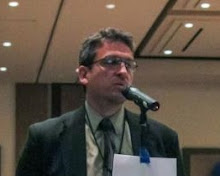Hospers was chairman of the philosophy department at the University of Southern California when he was nominated on June 18th, 1972, to be the new party's presidential candidate. The convention, held in Denver, Colorado, also nominated Theodora "Tonie" Nathan for vice president. Hospers and Nathan were on the ballot in two states and received 3,671 votes. Despite the result, several facts combined to make the campaign absolutely revolutionary:
- Although Hospers did not carry any states, the Libertarians nevertheless received an Electoral College vote. That vote came from right here in the Old Dominion, and it was cast by a man named Roger MacBride of Charlottesville.
- Hospers was the first-ever openly gay candidate for president.
- With MacBride's vote, Hospers also became the first gay presidential candidate to receive an Electoral College vote.
- His running mate, Tonie Nathan, became the first woman ever to have won an Electoral College vote - years before Geraldine Ferraro.
- Lastly, the ideology of the Libertarian Party itself simply had no parallel in any other American political party. The Libertarian platform of 1972 called for (among other things) the repeal of all laws on voluntary sexual relations, drug use, gambling, and attempted suicide; the repeal of all pornography laws; the abolition of the draft; the repeal of the National Labor Relations Act; the elimination of all legal tender laws and a return to a gold standard; the abolition of the Federal Reserve System; the abolition of all government subsidies to business, labor, education, agriculture, science, or the arts; the abolition of all tariffs and quota regulations in foreign trade; the repeal of all compulsory education laws, an end to government operation, regulation, and subsidy of schools, as well as an end to compulsory busing; the abolition of the minimum wage; an end to all corporate and individual welfare; elimination of all foreign aid, and withdrawal and de-funding of the United Nations.
Predictably, MacBride was widely vilified for his Electoral vote. He was labeled a "faithless elector", and worse. However, the Electoral College was intended to be a last check against a manipulative tyrant winning the Presidency. Delaying the one and only meeting of the College for months after the popular vote was a chance for civic-minded citizens appointed by the voters at large to watch, learn, and listen to the winner of the popular vote. If they collectively decided he would be a dangerous, infirm, or poor choice, it was understood they had every right to choose someone else.
In other words, the Electoral College was created to slow down mob rule before handing an intensely powerful position over to a tyrant. MacBride, therefore, was a hero: he was one of the rare electors who took his job seriously. Very late in Nixon's 1972 campaign, it became clear even to many of his ardent supporters that he had seriously abused his power. MacBride acted on that knowledge.
The value of new alternative parties lies in their ability to bring ideas the establishment ignores into the political marketplace. This happened with the birth of the Republican Party in the mid-1800's, with its abolitionist position on slavery. Unfortunately, once abolition was realized, Republicans contrived with Democrats to turn everyone into slaves of the state.
The Libertarian Party formed in an era when the two legacy parties refused to end the draft and the pointless war in Viet Nam, while colluding to debase the currency and strip away cherished rights. Today, Libertarians continue to push for peace and justice; and a Libertarian presidential choice is normally on most state ballots. The political party and the wider movement that Hospers helped bring into being is still a going concern today, 39 years later.
Hospers served as an inspiration for many young people in the seventies, including this author. Although he turned away from the LP and libertarianism altogether and towards interventionism and conservative ideology in his later years, he remained larger than life to many among the libertarian community.





No comments:
Post a Comment